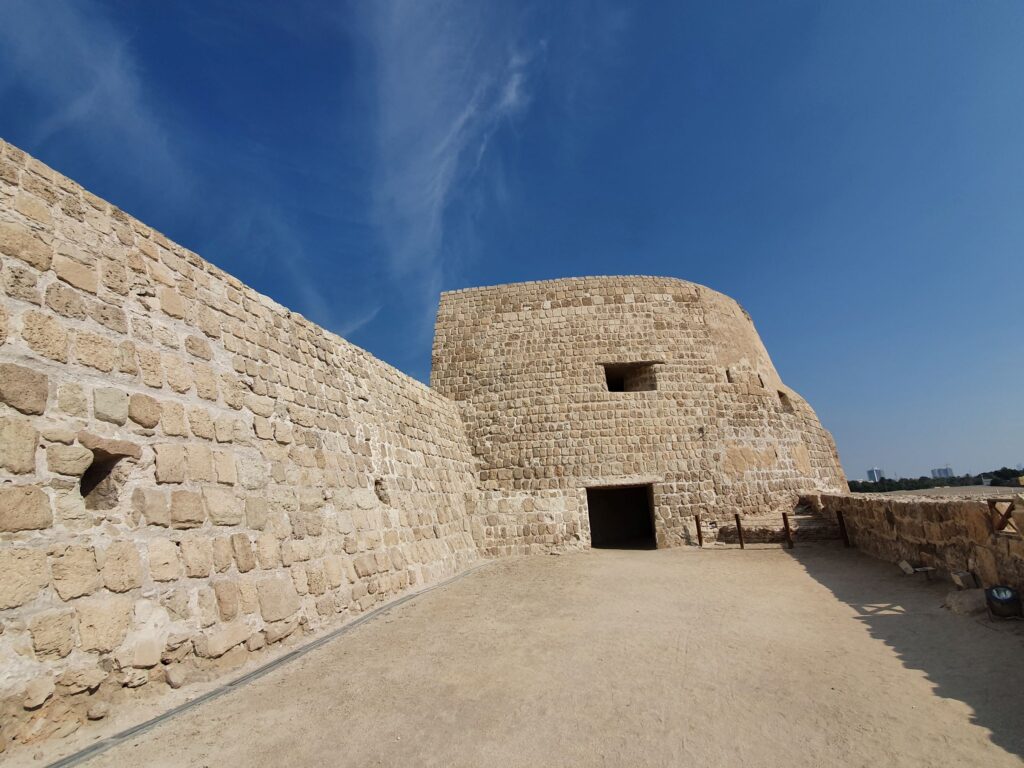Health Insurance in Bahrain
Moving to Bahrain
If you are planning on visiting or living in Bahrain it is important that you understand the healthcare system it has in place. Bahrain’s healthcare services have improved over the tears and there is now a solid infrastructure in place that supports both public and private sectors. However, the country is struggling to meet the demands of a booming expat population in the country. We’ve put together a complete guide to health insurance in Bahrain to help you ensure that you can get the treatment you need while away…
Healthcare in Bahrain
Healthcare in Bahrain has many things going for it.
Not only does the country offer high levels of medical care, but being a small country you’re never far from a hospital. This is in contrast to a number of other Middle Eastern countries where the best medical establishments are found almost exclusively in major urban areas, while more outlying areas suffer from a dearth of quality medical services.
In addition, Bahrain has become famous for its large number of efficiently-run hospitals meaning that waiting lists are minimal. One can realistically expect to see a doctor within 24-48 hours of requesting an appointment; much sooner if the situation is an emergency.
Lastly, as roughly 25% of the population are expats, it is not uncommon for doctors and nurses to speak fluent English. This helps to remove many potential language barriers and makes for higher levels of treatment.
Is Healthcare Free in Bahrain?
National citizens of Bahrain have access to free and heavily subsidised healthcare. Public services are free of crowds and long waiting times due to a small population and despite the growing number of expats entering the country.
Foreigners can use public services in Bahrain but treatment and care will not be as subsidised as it is for nationals and a small co-payment will need to be provided.
Who is Eligible for Healthcare in Bahrain?
Anybody in Bahrain will be able to receive healthcare. However, what they pay will depend on whether they are covered or not. Whilst expats are partially covered by Bahrain’s national health insurance scheme, the majority tend to purchase international healthcare insurance so that they can use private facilities and cover and expenses fully.
Expat Healthcare Screening
Many expats are unaware that all foreigners will need to have two medical examinations for their paperwork to be processed. One will take place in your home country and one in Bahrain. Both tests are to certify you are in good health and do not carry any infectious diseases. The first test will be more detailed and both are compulsory.
Bahrain Health Insurance for Expats
As with many other Middle Eastern countries, each of which attracts impressive numbers of expats each year, there is no such thing as a “free lunch” when it comes to medical care. Indeed, as an expat you will end up paying for healthcare services one way or another. These days health insurance for expats is mandatory though this may be provided in a number of ways depending on employment circumstances.
For example, at present small companies (with fewer than 50 employees) are obliged to contribute funds to the government to cover the costs of basic health insurance on your behalf.
For larger companies, however, the options are rather broader.
Here larger companies may opt to provide their own health insurance or pay into the government funds as per smaller enterprises.
Despite this mandatory health insurance via employers, many expats still opt for private expat health insurance.
Private Expat Health Insurance in Bahrain
Private insurance often offers far greater levels of care than basic employer-issued policies. For example many expats benefit from private medical insurance by being able to visit private clinics and hospitals where standards of medical care are on par with the UK or USA.
In addition, many expat insurance policies offer additional features such as medical repatriation and dental cover for expats which cannot be found elsewhere.
It should be noted that while the standards of care for standard medical issues are considered high in Bahrain, it is not uncommon for the most serious cases to require transport to another country. Even many wealthy Bahrainis opt to seek medical assistance overseas where appropriate. Sadly, without appropriate insurance, such an exercise is likely to be prohibitively expensive.
Medical Examinations in Bahrain
One rather unique aspect of the Bahraini healthcare system is that expats are required to attend two separate medical examinations. The first of these – typically the most detailed – is carried out in your home country. In essence, your doctor will be required to issue you with a certificate of good health, and to confirm that you do not carry serious infectious diseases such as HIV or AIDs.
This document becomes an integral part of your acceptance into Bahrain. Upon arrival, one will then visit a local doctor for a similar secondary health examination, though this in reality tends not to be as detailed.
Either way it is important to appreciate that these medical examinations are mandatory so should be planned for. When you are considering relocating to Bahrain it is wise to seek the latest information on the specific requirements of such an examination so you can be confident of obtaining the necessary paperwork.
Expat Prescriptions in Bahrain
In Bahrain, it is not uncommon to find pharmaceuticals available over the counter which is prescription-only in your home country and vice versa. In addition, note that sleeping pills and anti-depressants are banned in Bahrain due to their addictive properties. Expats should not attempt to bring such drugs into the country and should be aware that obtaining them for all but the most serious medical conditions is likely to be problematic.
To ease your entry into Bahraini life it is smart to bring with you any medication you are currently being prescribed, together with the original prescription to confirm its legitimacy. Be sure to ask your doctor for the generic name of any drugs being taken as it may not be possible to find the brand you are familiar with – and this can create problems when seeking further supplies in Bahrain.
There are a number of nationwide pharmacy chains. Best-known are Alrahma Pharmacy, Wael Pharmacy, and Bahrain Pharmacy, though please be aware that pharmaceuticals tend to be expensive in Bahrain.
Vaccinations for Bahrain
Presently, besides standard vaccinations seen in most countries (such as measles, mumps and rubella) it is also recommended that expats visiting Bahrain ensure their tetanus is up to date.
Depending on the lifestyle it may be appropriate to receive the following additional vaccinations:
- Hepatitis A
- Hepatitis B
- Rabies
Visitors should note that an outbreak of cholera was experienced in 2015, so visitors should take care with drinking water etc.
For regularly updated health guidance please see: http://travelhealthpro.org.uk/locations/bahrain/
Emergency Medical Care in Bahrain
To request an ambulance dial 999 from any landline or mobile phone while in Bahrain.
List of Hospitals in Bahrain
Bahrain is impressively well-served by a wide range of high-quality medical facilities. The following list of hospitals in Bahrain provides details of many of the most popular and highly-regarded establishments.
| Hospital Name | Address | Tel No. |
|---|---|---|
| American Mission Hospital – Saar | Building No 1114 / 116, Road 3345, Area 533 , Saar, Bahrain | +973 1779 0025 |
| Al Hilal Hospital | Rd No 1129, Muharraq 23622, Bahrain | +973 1734 4199 |
| Al Kindi Specialised Hospital | Building 960, Hwy 35, Bahrain | +973 1724 0444 |
| American Mission Hospital – Amwaj | Building No 105, Road 59 , Block 257, Amwaj, Bahrain | + 973 1724 8100 |
| American Mission Hospital – Manama | PO Box No. 1, Manama, Bahrain | + 973 1717 7711 |
| Awali Hospital | Al Jamrah Ave, Awali 945, Bahrain | +973 1775 3333 |
| Bahrain Defence Force Hospital | Ar-Rifaa, Bahrain | +973 1776 6798 |
| Bahrain International Hospital | Budaiya Hwy, Jidhafs, Bahrain | +973 1759 8222 |
| Bahrain Specialist Hospital | Rd No 2447, Manama 10588, Bahrain | +973 1781 2080 |
| Darkulaib Hospital | Rd No 3302, Manama, Bahrain | +973 1782 8282 |
| Dr. Tariq Saeed Hospital | Building 284, Road 3306, Block 333, Mahooz, Bahrain | +973 1782 2822 |
| German Orthopedic Hospital | Building 99, Road 29, Block 329, Manama, Bahrain | +973 1723 9988 |
| Gulf Dental Specialty Hospital | Umm Ishoum Ave, Manama 54025, Bahrain | +973 1774 1444 |
| Gulf Diabetes Specialist Center | Building 99, Road 29, Block 329, Zinj, Bahrain | +973 1723 9239 |
| Ibn Al-Nafees Hospital | Rd No 3302, Manama, Bahrain | +973 1782 8282 |
| KIMS Bahrain Medical Centre | Rd No 3709, Manama, Bahrain | +973 1782 2123 |
| King Hamad University Hospital | Shaikh Isa Bin Salman Causeway, Al Sayh, Bahrain | +973 1744 4444 |
| Noor Specialist Hospital | 99 King Abdulaziz St, Manama, Bahrain | +973 1726 0001 |
| Royal Bahrain Hospital | 29, Manama, Bahrain | +973 1724 6800 |
| Salmaniya Hospital | Alsalmaniya, Manama, Bahrain | +973 1728 4090 |
| Shifa Al Jazeera Hospital | Rd No 640, Manama, Bahrain | +973 1728 8000 |
| Urology & Plastic Surgery Hospital (UPS) | Bu Ashira, Manama, Bahrain | +973 1782 2300 |
| Wellmed Clinic | Villa No. 170, Road 66, Block 362, Bliad Al Qadeem, P.O Box 75225, Manama, Bahrain | +973 1760 0221 |
Moving to Bahrain
Bahrain is a group of islands in the Persian Gulf, with Qatar to the south and Saudi Arabia to the west. Like most of the other Gulf States it has benefitted handsomely from the discovery oil, which occurred in the 1930’s, long before similar reserves were found in neighbouring countries.
These days, while the oil wells are drying up, Bahrain has diversified its economic outlook and is now considered one of the fastest-growing economies in the world. Little wonder then that expat workers flock here from across the globe. It is now considered the fourth most densely populated country in the world.
Today over the half the population of Bahrain are non-native, which has led to a socially and culturally diverse country, with far more tolerance of other religions and ideologies than some other Gulf nations.
This diversity means that while Bahrain has worked hard to maintain its cultural history and unique identity, visitors seldom have problems being accepted into this welcoming country. Bahrain now represents a cosmopolitan melting pot, with numerous disparate influences affecting everything from the languages encountered to the cuisines served.
Visitors to Bahrain can, therefore, look forward to an exciting multi-cultural country with all the different experiences this can entail.
Moving to Bahrain
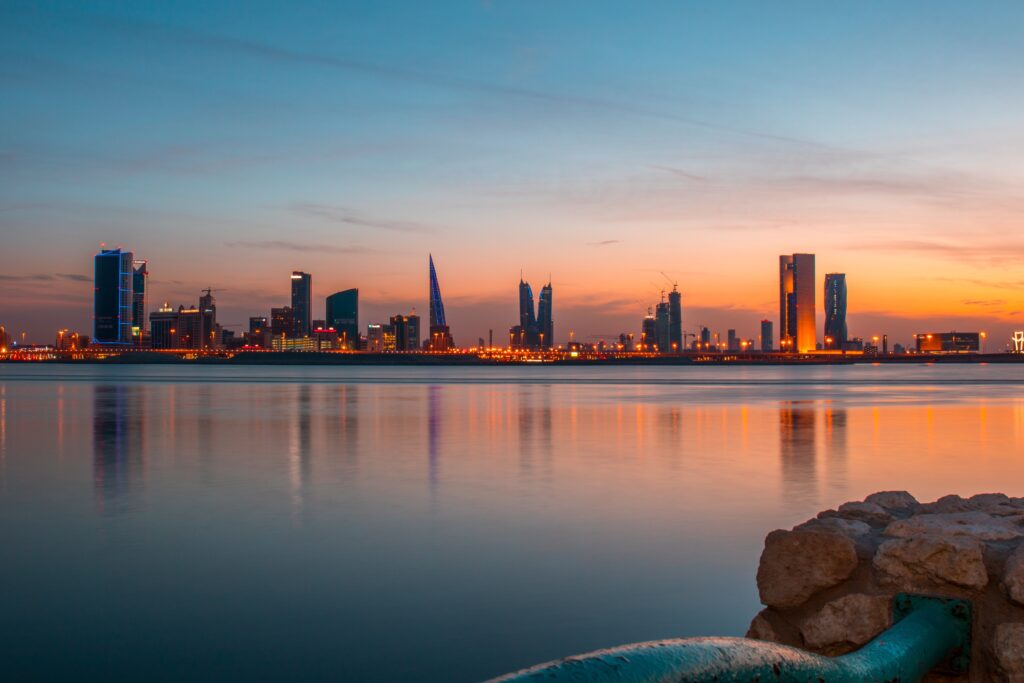
Bahrain Weather
Bahrain is an intriguing destination for travellers and expats alike. Rather than representing a single landmass – such as nearby Saudi Arabia – it is instead a network of islands. Originally numbering some 30, thanks to land reclamation Bahrain now claims over 80 land masses. Of these Bahrain Island is the largest and most developed. It is here that the capital city, Manama, resides, and where most expats are likely to find themselves stationed.
Over the years Manama has grown to be a major urban hub with all the modern conveniences this entails. There are hospitals and schools aplenty, together with a well-maintained road network. That said, outside of this sprawling metropolis essential services can be much more difficult to encounter.
Bahrain is a desert nation, and as such one can expect hot summers. In July and August, when the heat is at its most extreme, daytime temperatures of 40’C or more are commonplace.
On the other hand when it comes to cooling off on a hot summer’s day you’re never far from the ocean on this Arabian archipelago.
The waters here are shallow and represent an important wildlife sanctuary. Dolphins and sea cows are commonplace in these clear, warm waters which makes Bahrain an ideal destination for snorkelling or more serious sub-aqua diving. In addition, Bahrain is considered an important stopping-off point for migrating birds so wildlife watchers will find themselves well-placed.
Winters are altogether more pleasant, with the mercury hovering closer to 20’C. It is during the winter months that the majority of Bahrain’s scant precipitation occurs. Generally speaking spring and summer are the most settled times of the year, making them the ideal seasons for sightseeing.
Culture in Bahrain
While all comparisons are relative, Bahrain is broadly considered to be rather more liberal than many Gulf State nations. While female visitors may still sometimes encounter unwanted male attention gender equality is far more prevalent. Women in Bahrain not only have the right to vote but can also take political office. As such, there is likely to be less culture shock for female visitors to Bahrain than many other countries in the region.
There are other indications of Bahrain’s tolerance and modernity. While the majority of the population here is Muslim, other faiths still exist here with minimal interference. Small Christian populations exist here, for example.
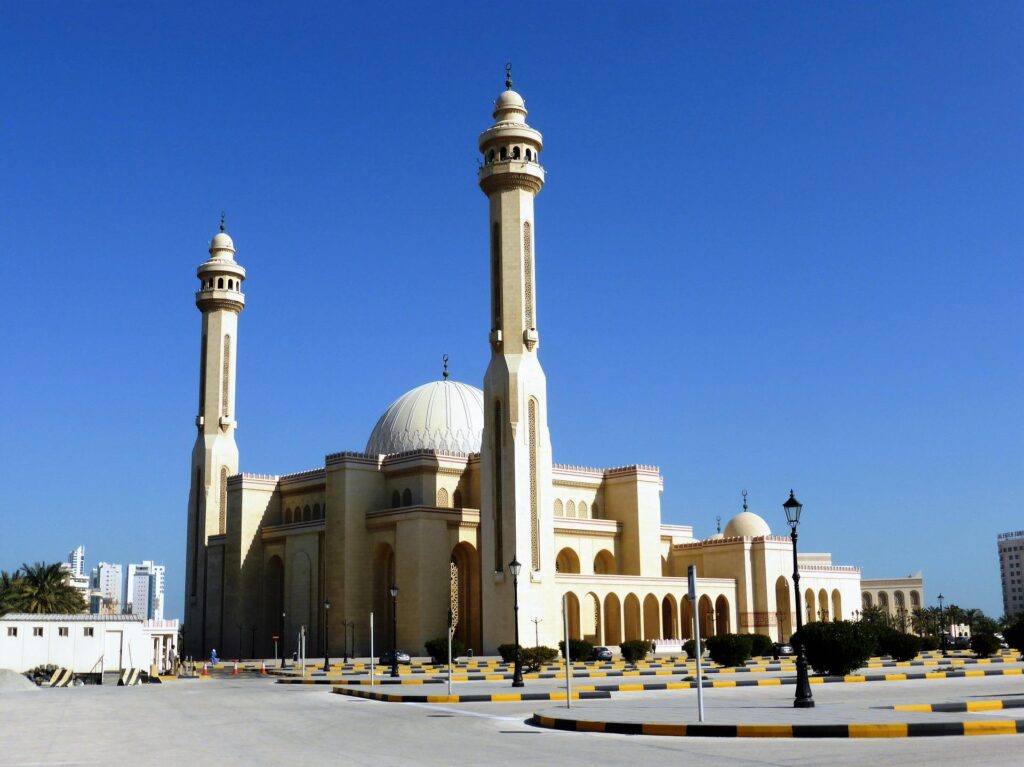
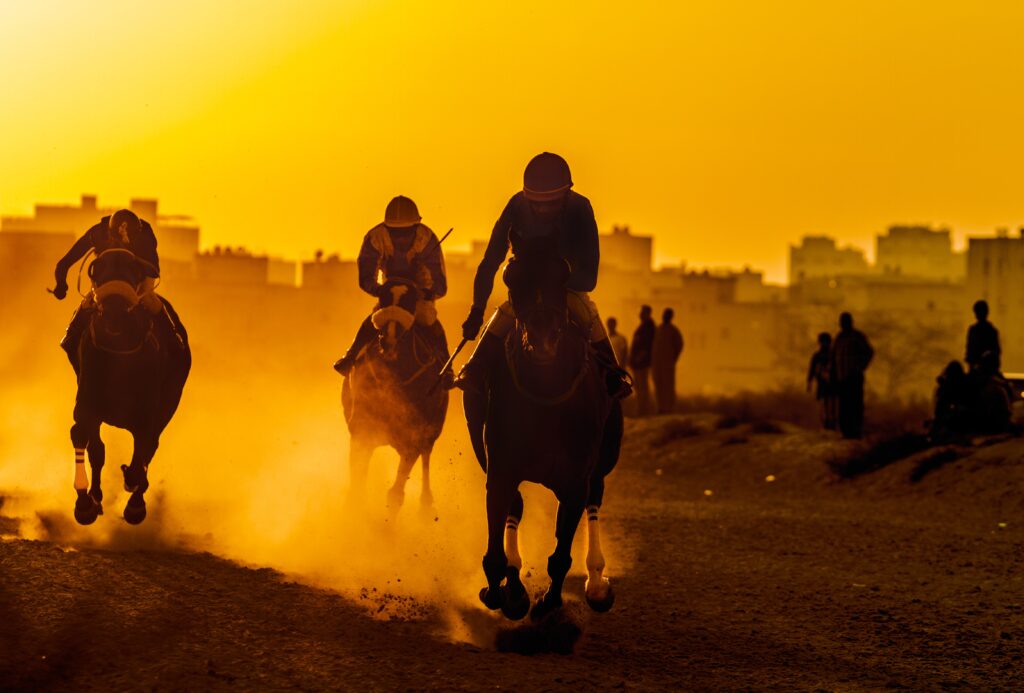
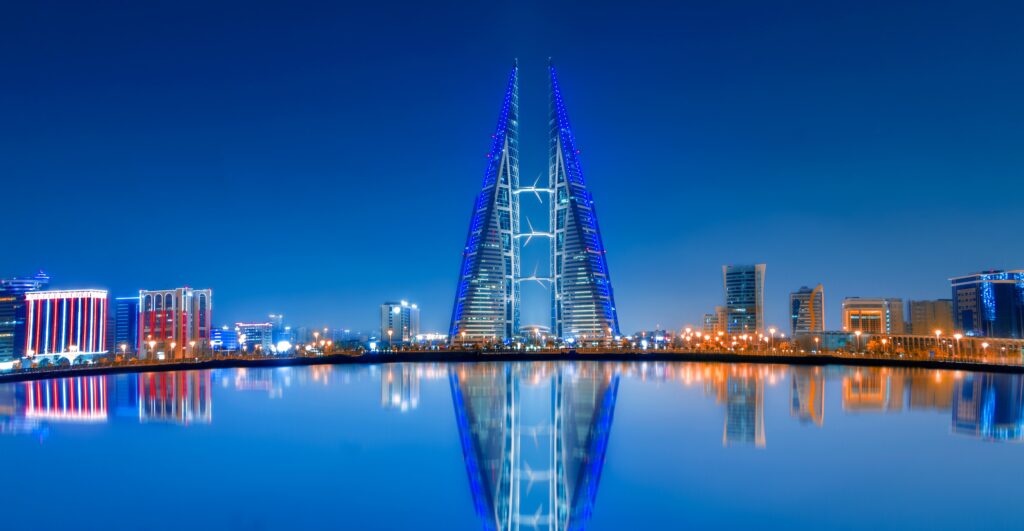
Additionally, in contrast to many other Muslim nations, alcohol can be purchased and consumed not just by visitors but also by locals alike. That said, just because alcohol consumption is legal doesn’t necessarily mean it is commonplace; visitors should refrain from offering alcohol to native Bahrainis for fear of causing unnecessary offense.
As elsewhere in the Muslim world, manners and politeness are considered absolutely essential. Before visiting it is wise to invest some time into understanding the local customs in order to ingratiate yourself in social or business situations.
For example, one should avoid beckoning a Bahraini with the index finger (something reserved for animals) and one should also take care not to direct the soles of one’s feet at another person when sitting. If in doubt, note how your host is behaving and try to mimic this wherever possible.
Hospitality is a major aspect of life in Bahrain, and the generosity offered to guests can be almost overwhelming by those new to the country. Upon finishing a meal, for example, you should take care to leave a little food on your plate. This is an indication that you have been offered as much food as you seek. Clearing your plate entirely can lead to it being rapidly replenished before you have a chance to decline.
The same can be said for the delicious local coffee, whereupon your cup is likely to be repeatedly refilled until you shake the cup to signify your satiety.
Arguably the biggest social event in Bahrain is the annual Grand Prix – held in April each year. At such times Bahrain becomes a global magnet for tourists, with flights booking up quickly and hotels hiking prices considerably. While this in itself is quite a spectacle to observe, budget-conscious travellers are advised to avoid this already-expensive country at such times.
Bahrain Language
The national language in Bahrain is Arabic, though as a major expat destination it should come as no surprise that a range of other languages are encountered with regularity. English, for example, is considered a second language in Bahrain. It is a compulsory subject taught in all schools, many road signs display bi-lingual advice in both Arabic and English, and there are even English-language newspapers freely available.
Bahrain Transport
As a network of islands transportation around Bahrain is intriguing. Bahrain International Airport (BIA) – where most visitors are likely to arrive in the country – is actually located on a separate island from the capital. A modern bridge allows road access from Muharraq Island to Bahrain Island.
An even more impressive bridge links Bahrain to the Saudi Arabian mainland. Known as King Fahd Causeway, this multi-lane bridge spans a total of 15 miles. This is a notable achievement for a country whose largest island is only 29 miles in length at its longest point.
Once within the country, driving is arguably the most practical way to get around. Visitors with a valid UK driving license may drive for three months in Bahrain, after which point an International Driving Permit will be required.
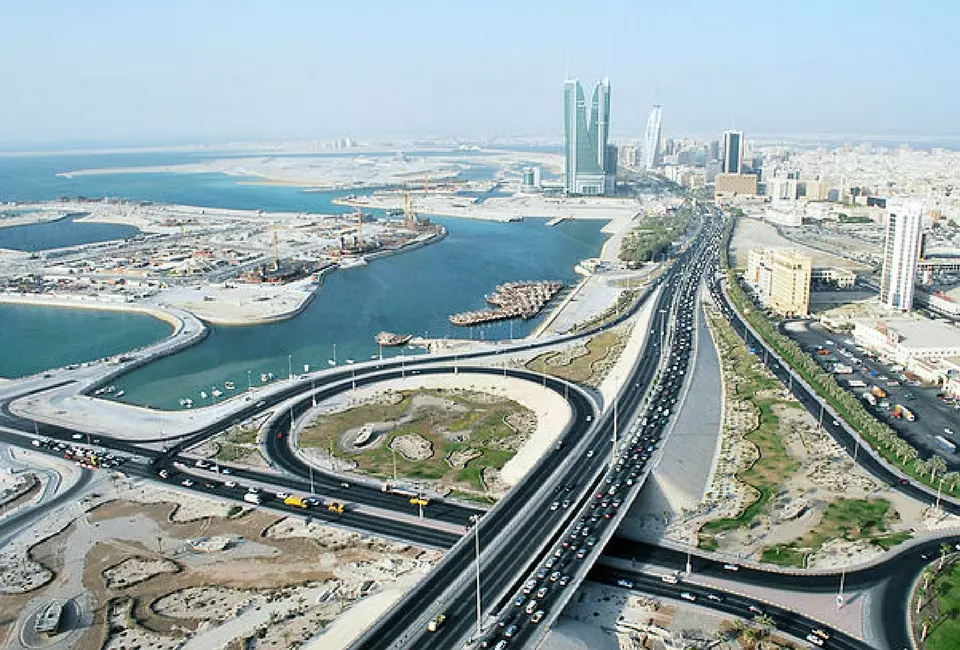
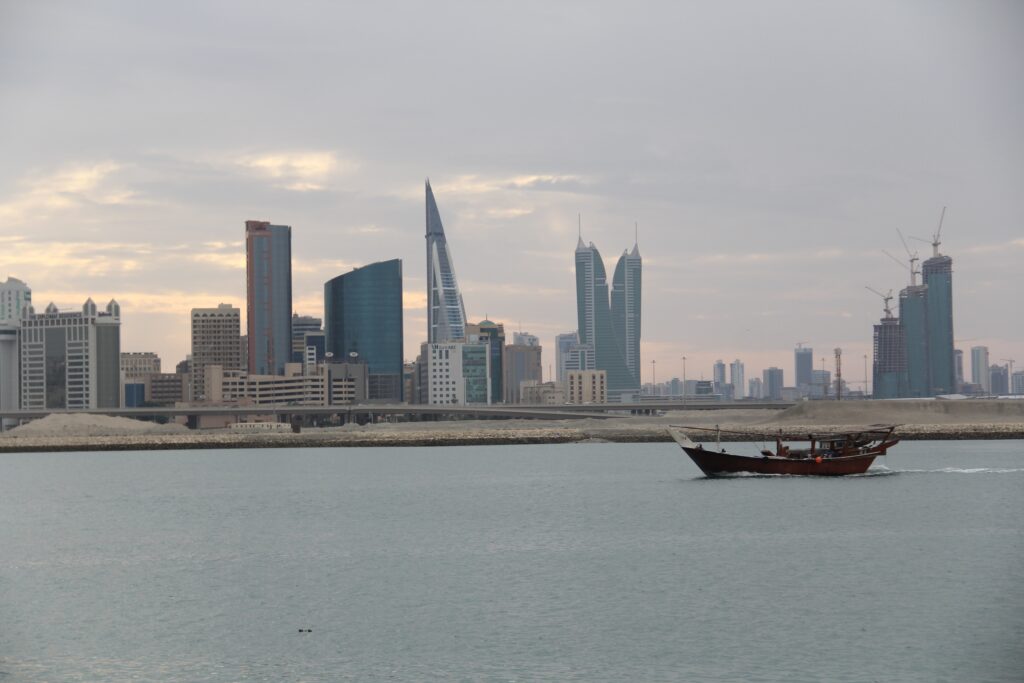
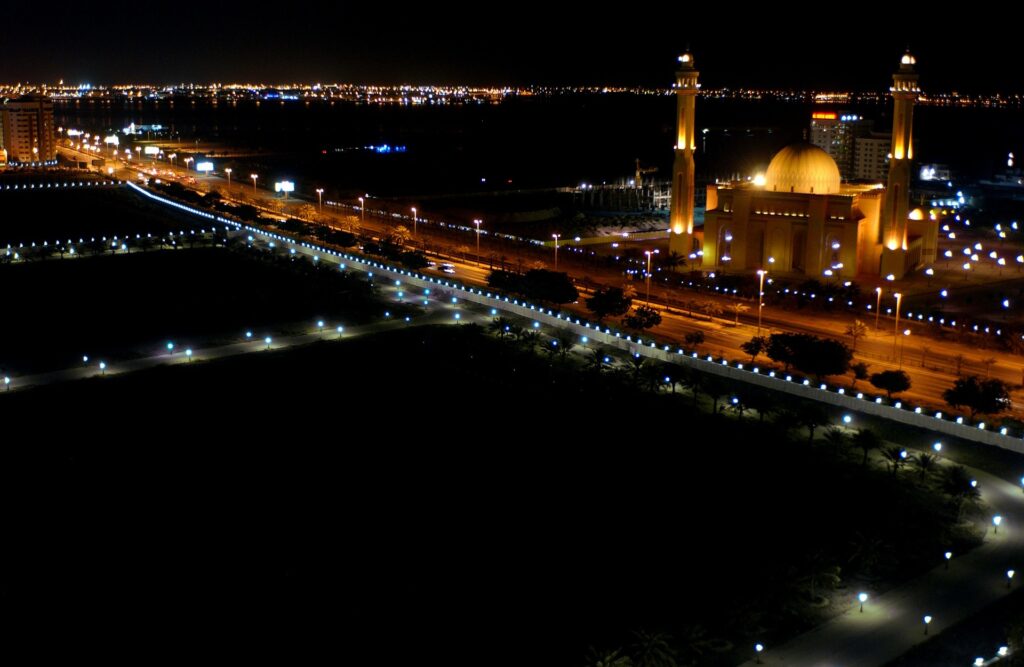
The roads are generally well-maintained, though first-time drivers in the country should be warned that driving standards may not match up to your previous experiences. Expats and travellers alike are also advised to stick to the tarmac roads rather than being tempted by off-road driving which can be treacherous, even in a 4-wheel drive vehicle.
Note that driving laws are taken very seriously in Bahrain. The breaking of speed limits or drink driving can result in significant fines – or even an all-out driving ban.
For those visitors who would rather rely on public transport there are a number of options.
At least within Manama itself taxis are ten-a-penny. Easily found waiting outside many hotels, the fares tend to be relatively cheap in comparison to many other global locations. That said, while all taxis in Bahrain must use a meter in order to charge clients, the reality is that many cabbies try to avoid using the technology. Reports exist of meters frequently being “broken” or simply concealed beneath hats, paperwork and so on.
This is especially problematic as pick-ups from some destinations (such as hotels and the airport) can attract a significant surcharge. If you are catching a taxi from other destinations you will want to be certain that you’re not “accidentally” charged this premium.
It is wise, therefore, when entering a taxi to ensure that the meter is working – and is running – and that no surcharge has already been added. Legally all taxis in Bahrain must use a meter, and if no meter is working then no fee is payable on arrival. Quite how far you want to press home this point to a non-compliant taxi driver is up to the individual.
Alternatively radio taxis can be requested. While their fares may be slightly higher they are also far more likely to possess a working meter, thus ensuring you are correctly charged for your journey.
Bahrain also benefits from an extensive and reasonably-priced public bus network. That said, the main purpose of these buses is to ferry the extensive expat workforce to and from their places of work.
Buses, while cheap, can consequently be over-crowded, slow and often fail to service more tourist-centric parts of the country. It is wise to ask for advice at the bus station in Manama should you decide to try out the bus network, as deciphering routes can be problematic.
Finally, should you decide to venture to one of the many islands not currently connected to the road network you may have to rely on local dhows. Warnings surround their sea-worthiness so take time to inspect any vessel before boarding for your own safety and peace of mind.
Bahrain Currency
The currency in Bahrain is the Bahraini Dinar – often shortened to “BHD” or just “BD”. The Dinar is then further broken down into 1000 Fils. Note that the Bahraini Dinar is considered one of the strongest currencies in the world thanks to the growing economy, which can make Bahrain an expensive country to visit. Expats are wise to take this factor into consideration when discussing remuneration packages.
Bahrain is considered the first post-oil economy in the Middle East and has reinvented itself both as a major banking centre and as a tourist hub. Its finance-centric capital city means that ATMs are widespread, as are banks. Withdrawing local currency is therefore rarely problematic and currency exchange offices can be found all over Manama.
Visitors should note, however, that financial institutions may close over the “weekend” (Fridays and Saturdays) and during religious festivals such as Ramadan and Eid. As a result it is wise to plan ahead for such eventualities to ensure you are not stuck without suitable funds.
It is worth noting that Bahrain offers an intriguing “Currency Museum” which tells the story of money in Bahrain over the generations and makes a worthy visit.
Bahrain Currency
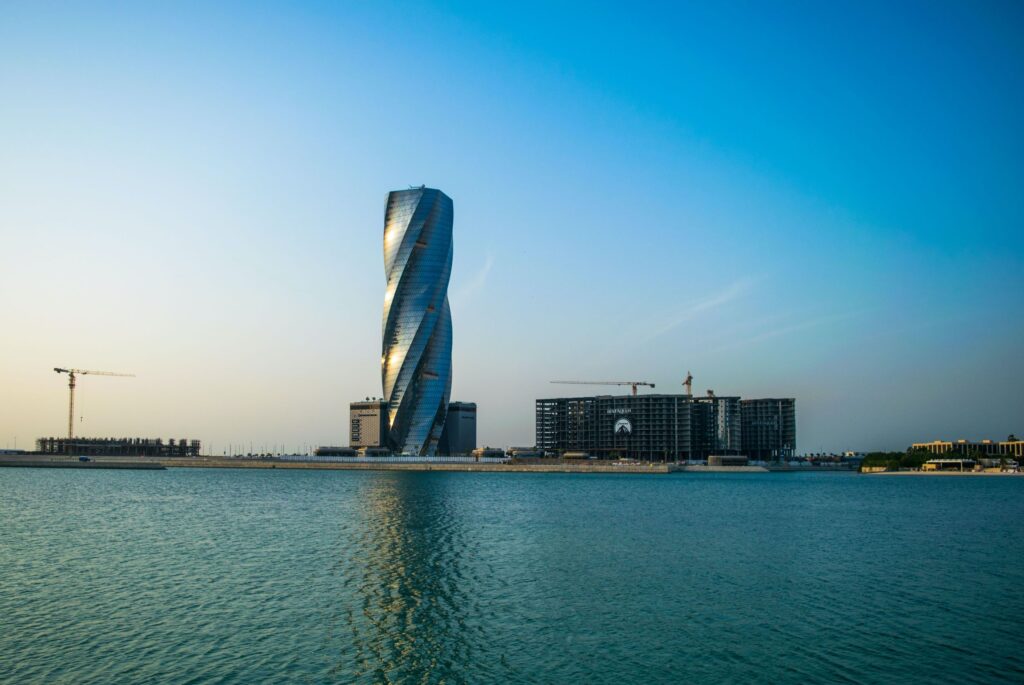
Schools in Bahrain
The last few decades have seen considerable improvements in the educational standards of Bahrain. These days the standards are considered excellent, with compulsory education existing between the ages of six and fourteen. That said, with the majority of lessons being provided in Arabic, most expats opt to send their children to one of the many private international schools found on Bahrain Island.
Of these, St. Christopher’s and the British School of Bahrain offer a British-style education, with lessons taught in English and a curriculum that mimics the British system.
Bahrain Food and Drink
Bahrain offers a diverse range of culinary experiences, meaning that no matter what your personal tastes may be there are sure to be appropriate dishes on offer.
On the one hand one will find global multi-national food chains like McDonalds and Burger King all over major urban areas.
At the other end of the scale Bahrain offers an impressive range of fine-dining establishments, primarily confined to Adliya which is considered the main dining quarter of Manama.
Then of course there are a range of traditional Bahraini restaurants and food stalls to be found all around the country. Note that with a very limited amount of agricultural land on the island much food is imported which can raise its price.
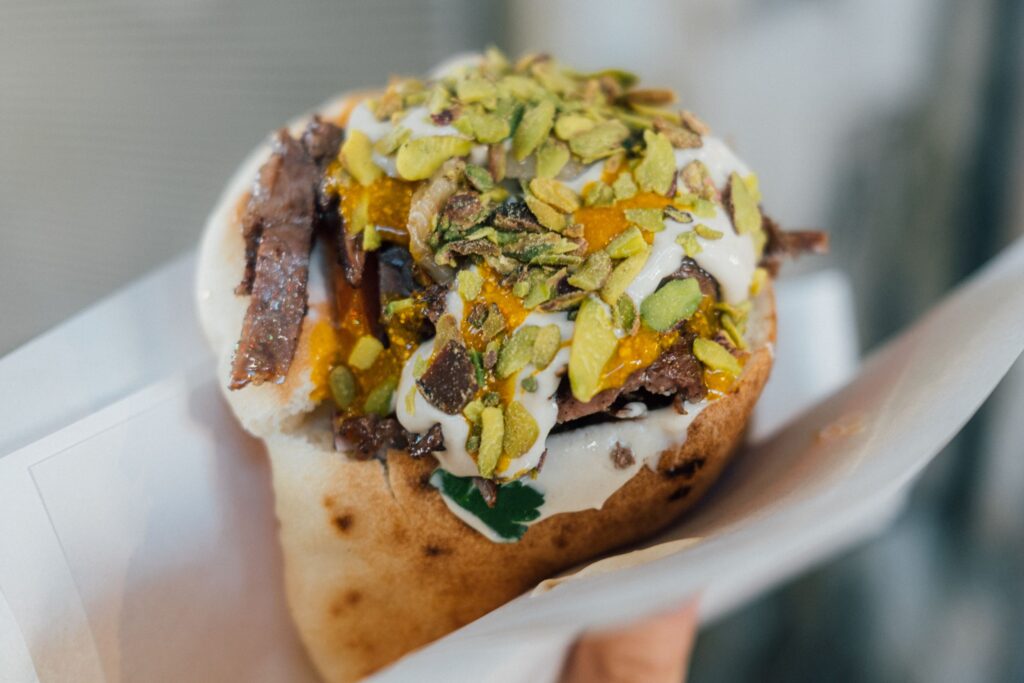
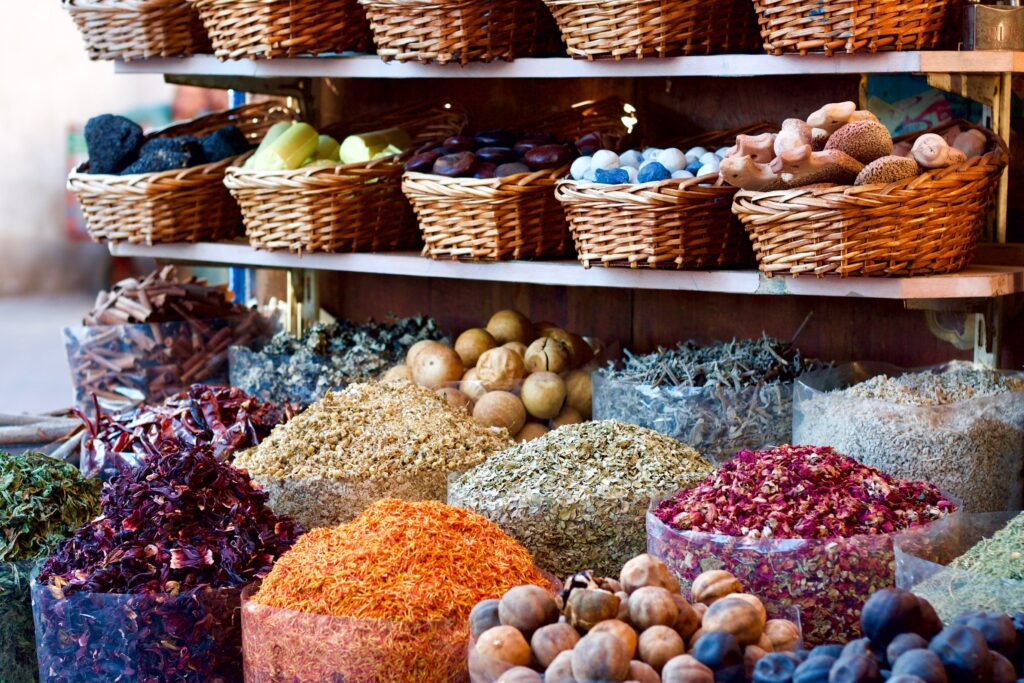

For those looking to sample the local delicacies, a range of options are on offer. One such dish is known as “Qoozi” and comprises grilled lamb stuffed with a heady combination of spices, egg, rice and onions.
A popular alternative is Shawarma; freshly-baked pita bread filled with spiced lamb or chicken.
In terms of beverages, coffee is considered something of a national institution. It is typically served in the traditional way in a special coffee cup called a “finjan”.
Questions remain over the safety of water in Bahrain. Rainfall in the country is minimal so the government is relying ever more heavily on wide-scale desalination plants. For safety, most expats rely on bottled water which is widely available. Indeed, for practicalities sake, it is possible to arrange for regular deliveries of bottled water to your home.
Safety in Bahrain
A definitive answer as to Bahrain’s safety is problematic. On the one hand, the Bahraini people are typically helpful, friendly and law-abiding. Like anywhere else a minority of petty crime may be experienced but broadly speaking Bahrain can be considered a very low crime destination. However, it is still a good idea to purchase international travel insurance prior to travelling.
That said, political demonstrations are becoming ever more commonplace. Such demonstrations can quickly become violent. While these have yet to be directed against expats they can represent an opportunity not just for physical harm but also a brush with the local law enforcement officers should they believe you are involved.
As a result, it is wise to pay careful attention to local media to stay abreast of any demonstrations in order to give them a wide birth.
The emergency services can be reached in Bahrain by dialling 999 from any telephone.
Visitors should note that it is a legal requirement to keep photographic identification on your person at all times. Government officials have the right to request these at any time, and individuals who cannot produce them may find themselves in rather more trouble than they bargained for.
Lastly, be aware that as a Muslim nation debt is taken very seriously in Bahrain. Individuals attempting to leave the country without settling all their debts may be refused exit. This can be doubly problematic as some visitors and expats have been denied their work visas at the same time, meaning that earning money within the country to pay off your debts also becomes an impossibility.
The message is clear; watch your finances carefully and avoid debt at all costs while in Bahrain.
Places to Visit in Bahrain
While Bahrain is investing time and money into becoming a major tourism hub the country at present does perhaps not offer the range of experiences available in, for example, the United Arab Emirates. That said, there is still a range of sites worthy of a visit that cover a wide range of interest and age groups.
Al Areen Wildlife Sanctuary
Shockingly, Al Areen represents the only protected area of land in all of Bahrain. Now a major tourist attraction Al Areen represents both a nature reserve and a zoological gardens. So whether it’s the native birds and plants that appeal, or some rather more exotic caged animals, this site represents a fascinating day out – and a way to learn more about the wildlife that abounds here.
Al Areen Wildlife Sanctuary

Lost Paradise of Dilmun Water Park
From the historic, to the ultra-modern; Lost Paradise represents a fun-park worthy of Miami or Florida. Build to mimic the lost world of Dilmun, where the Garden of Eden is supposed to have been found, the water park boasts everything from faux sculptures to water slides and swimming pools. It even offers an artificial beach with wave simulators. An ideal and family-friendly way to entertain the kids (and adults?) on a hot summer’s day.
Lost Paradise of Dilmun Water Park
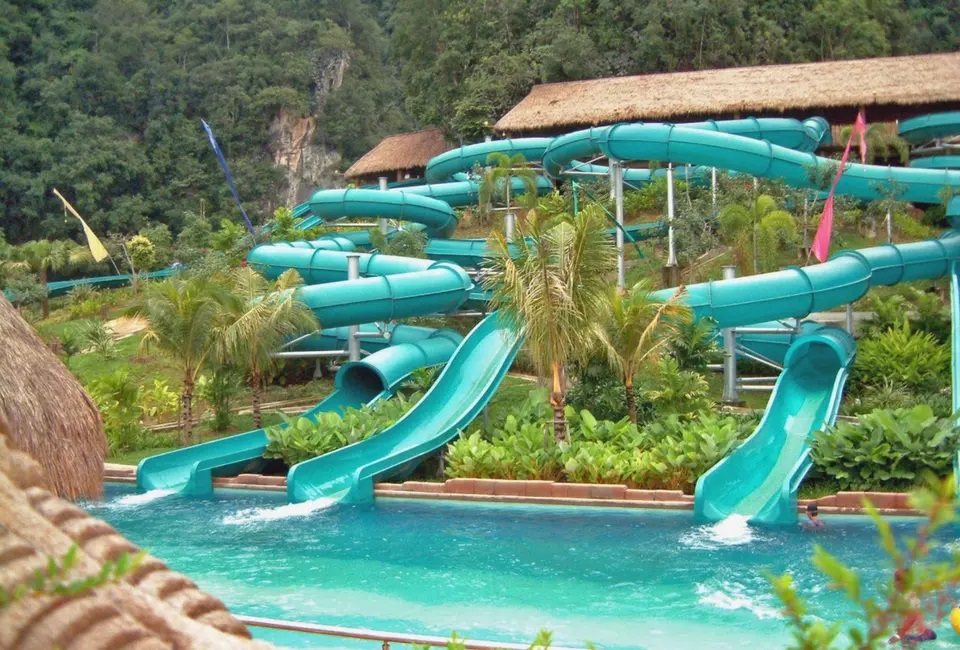
Al Fateh Grand Mosque
As its name might suggest, the Grand Mosque is the largest religious site in Bahrain. While the appearance of the mosque is one of timeless existence, it was in fact only built in 1987. As a result of its modernity the mosque was constructed with the very latest building materials. The Grand Mosque has reached international fame for possessing the world’s largest fibreglass dome, weighing in at over 60 tonnes.
Al Fateh Grand Mosque
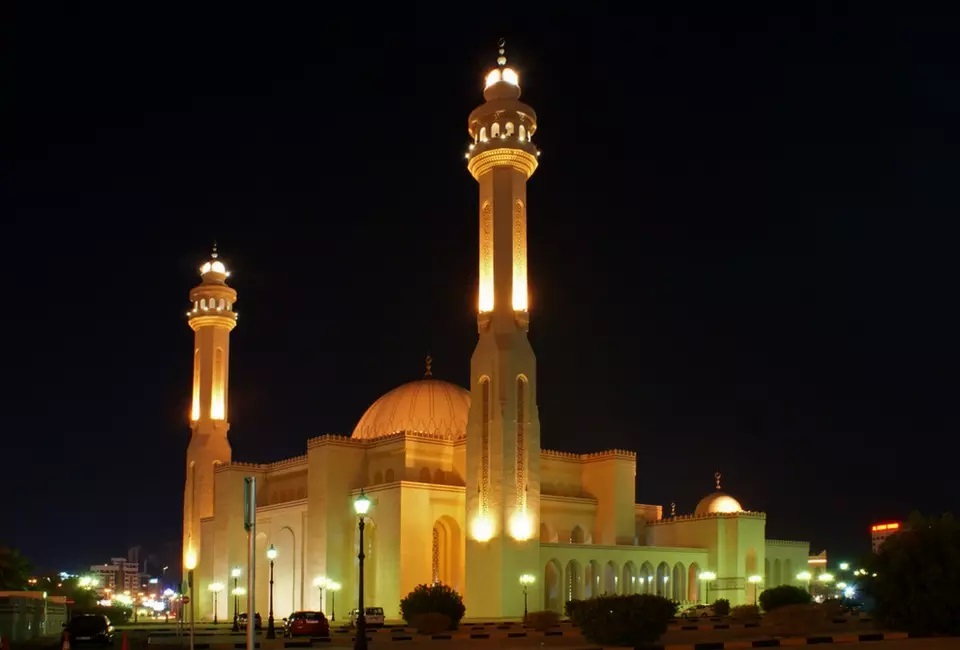
Dilmun Burial Mounds
Look out across this expansive sandy wilderness and you’ll be immediately captivated by the seemingly never-ending mounds fading into the distance. With an estimated 350,000 such mounds crammed into a small area of Bahrain this represents one of the most archeologically-rich areas in the entire country.
Experts believe the burial mounds took centuries to build up, with each one containing one or more bodies. The journey to understanding these mounds has really only just begun, with a potential treasure-trove of discoveries still to be made by historians.
Dilmun Burial Mounds
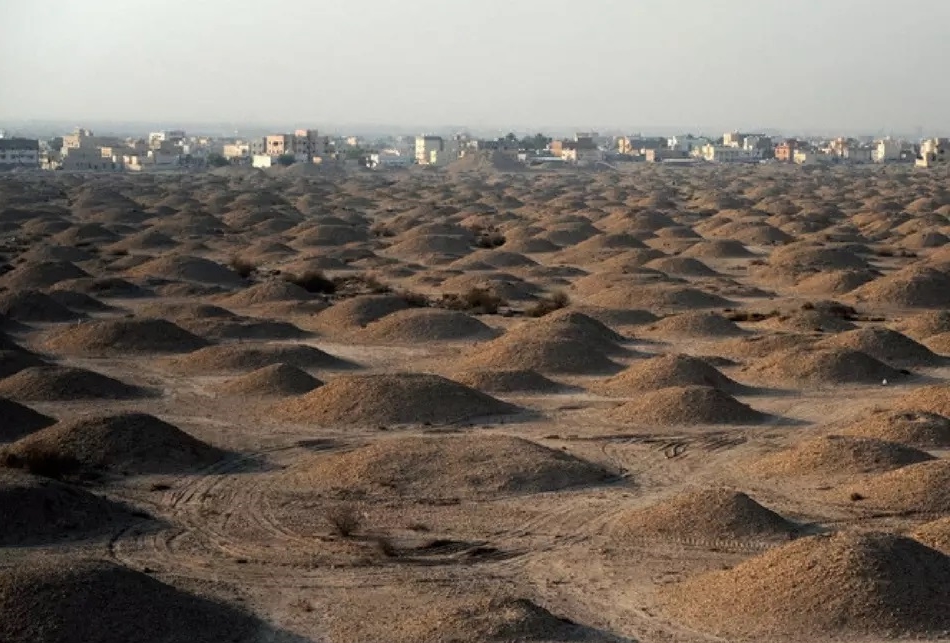
Qal’at al-Bahrain
Also known rather more simply as “Bahrain Fort” the colloquial name arguably doesn’t do justice to this incredible UNESCO-listed heritage site. Located on the northern border of Bahrain Island, careful excavations have revealed historical artefacts dating back over 4,000 years. So whether you go to explore the beautifully-preserved architecture or to wonder at the findings, there can be few better or more absorbing places to gain a firm grasp of Bahrain’s history through the ages.
Qal’at al-Bahrain
